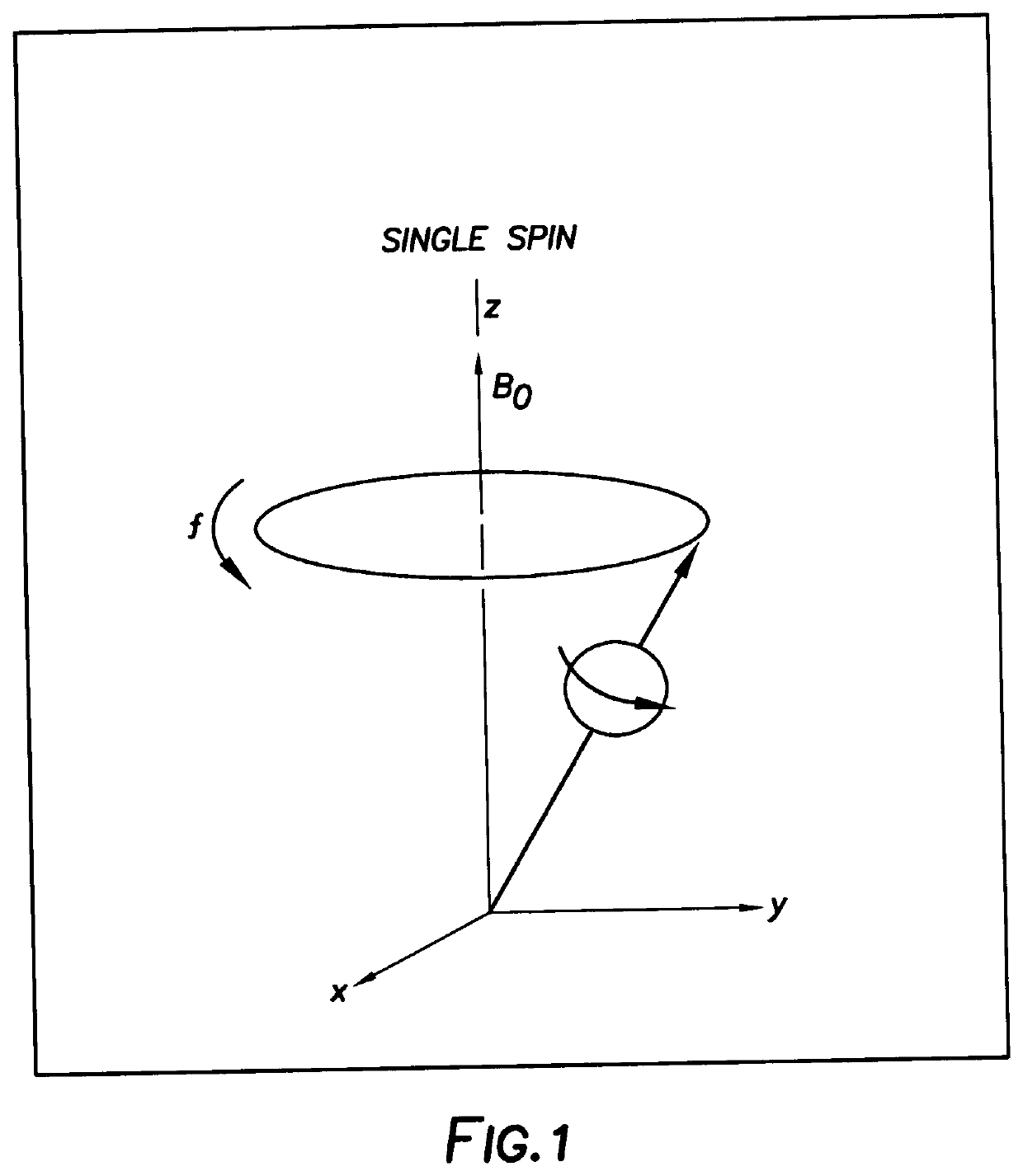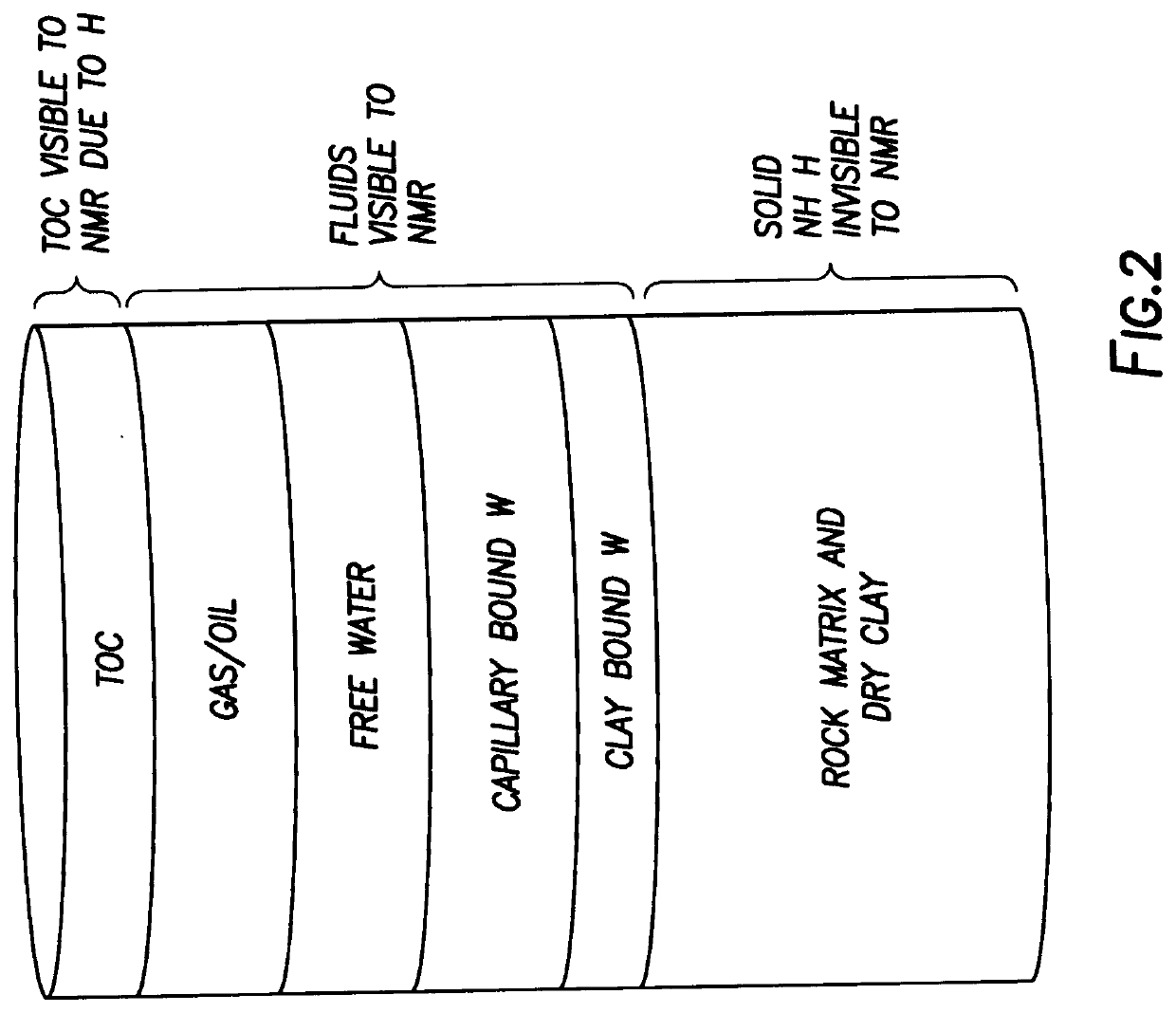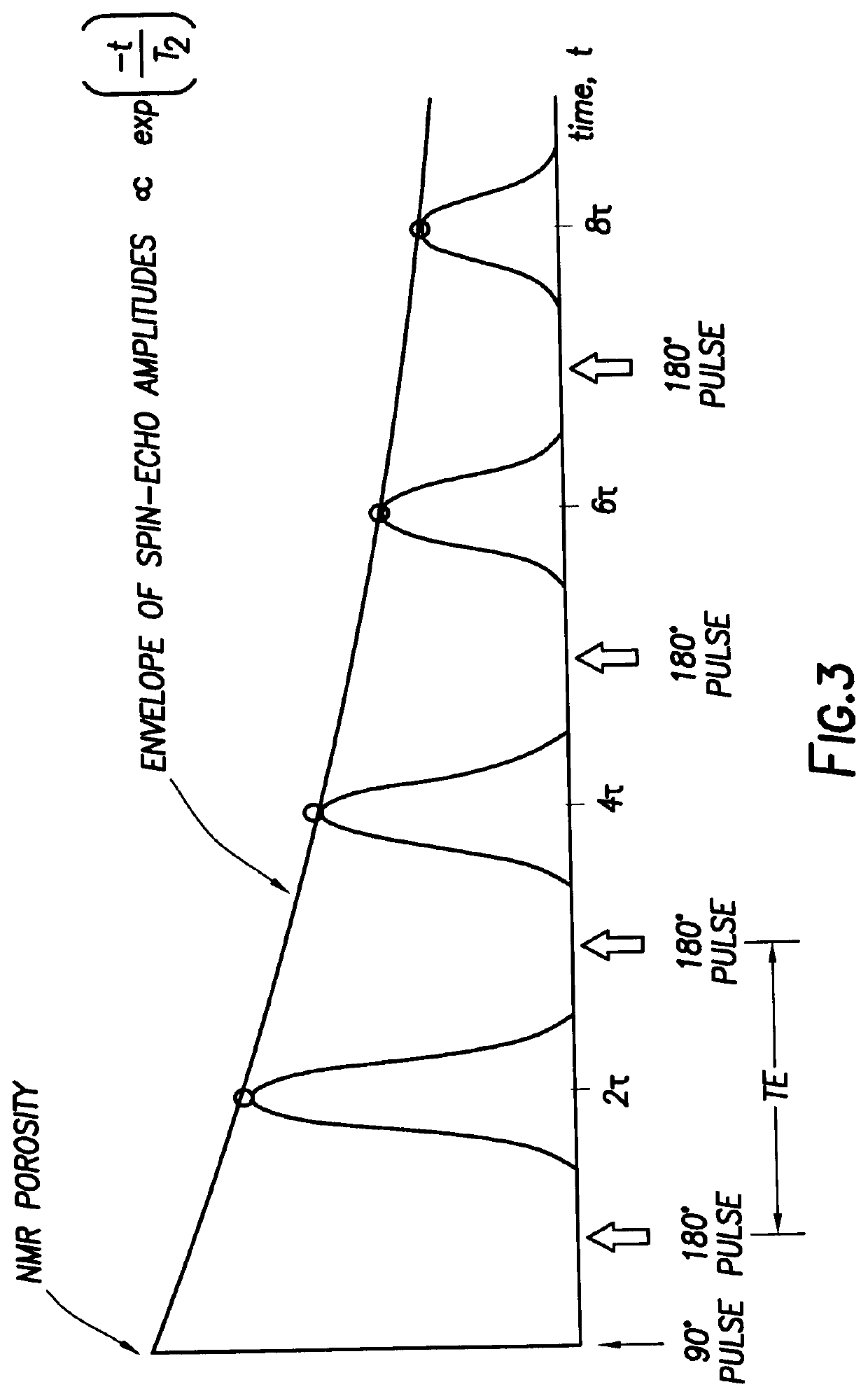Nmr sequential fluid characterization
a fluid characterization and sequential technology, applied in the direction of measurement using nmr, instruments, analysis using nuclear magnetic resonance, etc., can solve the problems of inconsistency, both methods, and the use of this methodology for formation analysis, which is shown to be difficult to achiev
- Summary
- Abstract
- Description
- Claims
- Application Information
AI Technical Summary
Benefits of technology
Problems solved by technology
Method used
Image
Examples
example i
[0097]The Niobrara formation was deposited in the late Cretaceous in the epicontenintal Western Interior Seaway. FIG. 16. This formation can be highly productive in the DJ basin on the eastern side of the Cretaceous seaway and is described as a Chalk and Marl with distinguishing benches composed of coccolith rich fecal pellets and pelagic clays (see Stout, L. “Carbon Isotope Chemostratigraphy of the Niobrara formation, Denver Basin, Colo.”, Colorado School of Mines Master's Thesis. (2012)). The Niobrara formation continued deposition with similar benches across the Cretaceous seaway to the western slope in what is now called the Sand Wash basin. FIG. 17. See Finn, T. M., et al., Niobrara Total Petroleum System in the Southwestern Wyoming Province: USGS Petroleum Systems and Geologic Assessment of Oil and Gas in the Southwestern Wyoming Province, Wyoming, Colorado, and Utah, Chapter 6 (2005)). The Niobrara in the DJ and Sand Wash basin can be informally divided into seven benches tha...
example ii
DRY GAS CASE STUDY
[0118]In order to confirm the versatility and applicability of the SFC methodology and high resolution NMR, an additional case study was undertaken in dry shale gas, as the previously mentioned Sand Wash example was in the black oil window. The reason for this undertaking is to observe if the high delta seen in the Sand Wash oil window would be repeatable in dry gas plays, which have significantly less heavy hydrocarbon due to high maturity. Fifteen samples were tested in the Marcellus and other plays in dry gas window using the same lab measurement parameters and SFC workflow that was used in the Sand-Wash case study. The SFC results were compared to GRI data as seen in Table 2 immediately below.
TABLE 2Comparison of SFC Methodology and GRI Methodologyfor Fluid Components of the Marcellus ShalePorositySFCGRIDelta ChangeMovable HC5.60%4.0%40%Heavy Hydrocarbon3.00%N / AFree Water0.00%N / AIrreducible Water0.70%N / AClay Bound Water0.60%N / AWater saturation18.8% 31%−40% Tota...
PUM
| Property | Measurement | Unit |
|---|---|---|
| porosity | aaaaa | aaaaa |
| porosity | aaaaa | aaaaa |
| porosity | aaaaa | aaaaa |
Abstract
Description
Claims
Application Information
 Login to View More
Login to View More - R&D
- Intellectual Property
- Life Sciences
- Materials
- Tech Scout
- Unparalleled Data Quality
- Higher Quality Content
- 60% Fewer Hallucinations
Browse by: Latest US Patents, China's latest patents, Technical Efficacy Thesaurus, Application Domain, Technology Topic, Popular Technical Reports.
© 2025 PatSnap. All rights reserved.Legal|Privacy policy|Modern Slavery Act Transparency Statement|Sitemap|About US| Contact US: help@patsnap.com



